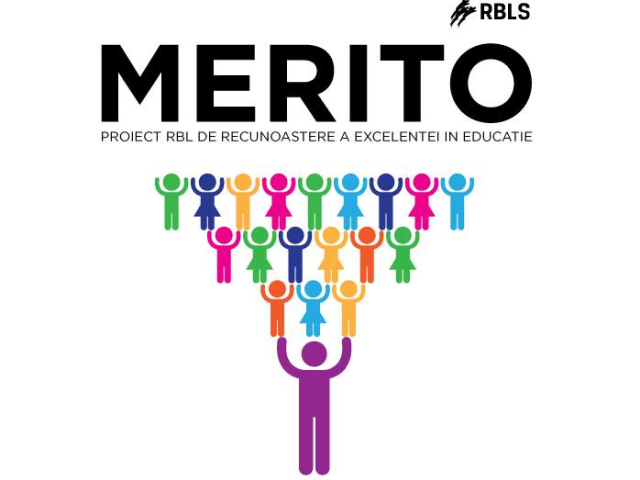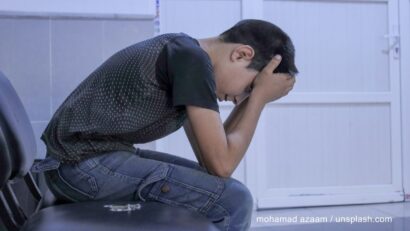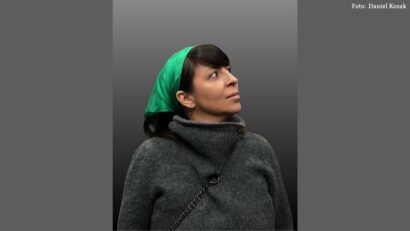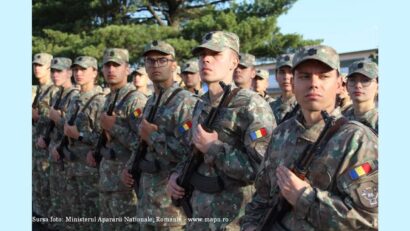MERITO, A Community For Meritorious Teachers
The MERITO project holds an annual gala to reward teachers with special results in pre-university teaching

Christine Leșcu, 28.09.2022, 18:11
The MERITO project, launched in 2015 by a group of entrepreneurs gathered under the Romanian Business Leaders association, holds an annual gala to reward teachers with special results in pre-university teaching. According to an OECD study made the year when the project was designed, a little over 40% of teachers in Romania felt that their job was appreciated by society. The MERITO organization was founded to prove them wrong, according to Cosmin Chirita, the manager of the project:
“We designed the project with the intention of recognizing valuable teachers across the country, in order to emphasize positive examples of teachers in a media environment populated for a long time with negative examples. In spite of hardships in schools, there are dedicated, passionate, and gifted teachers who make a vocation out of their job, opening horizons for students, and who are worth being shown as positive role models. Anyone can recommend such a teacher in pre-university schooling in Romania on our website. This is one of the sources for these recommendation. The second is going to local communities, to the existing MERITO network of teachers, in order to receive these recommendations. Then we have our selection process, which takes almost a year, with the proper documents, online or in person. We also have some criteria on the things they do outside the classroom, seeing to what extent they work with other teachers, or work with students, or work to aid disadvantaged communities. There are criteria which in essence sum up what we think of as a valuable, high performing teacher, which we hope would steer the education system in the direction we all wish it would.”
In addition to the MERITO gala awards, the teachers that get picked become a part of a community where they can exchange ideas and can improve their activity. Cosmin Chirita told us about this:
“Little by little, in time, we started developing this network of valuable teachers, investing continuously in their development, their professional training, with access to foreign experts, to studies, to analysis, including mediating their participation to courses or conferences that are relevant for their professional development. We want to carry them forward with best practices, methodology, and expertise they gained under these programs in order to contribute to training other teachers in the system. In essence, we want to increase the quality of teaching in Romania, starting at the grassroots, so that teachers can learn from teachers in local communities, under a system of collaborative learning.”
Among the MERITO community members is Doru Castaian, a teacher of humanities at the Dimitrie Culcin high school in Galati. Here is what he told us about his methodology:
“It is one thing to teach social education to students before high school, and it is something completely different to teach economy or philosophy to 17 or 18 year old students in the 11th or 12th grade. I dont think that there are special methods that apply specifically to these subjects. However, there is a fairly widespread noxious prejudice to this end. I was told many times that I manage to do certain things in the classroom because these disciplines allow it. If I were teaching math, or physics, or more exact subjects, I would not be able to do the things that I did teaching humanities. I dont think thats accurate. I think that the methodology that applies to humanities in general are perfectly proper for exact sciences. With older students I take a classical approach. I think that exposition itself has a fundamental role in teaching, even though this ancient method of teaching is not faring well nowadays. I think that we have to avoid an excess of interactivity and play time at any cost, because sometimes the mind needs substantial and serious fodder in order to function. So it is not a problem to preach, and it is not a problem to invite my students to take part in polemics, in argumentative discussions.”
Liliana Olarasu, a math teacher at a middle school in Iasi, is considered an atypical teacher, because she teaches this subject in a rigorous, but gentle way. In addition, she actually managed to get some of her students to not drop out of school. Here she is telling us about it:
“I had a few cases. I remember one boy who, unfortunately, had to do fifth grade again. He was the kind that was always in the last row of desks, no one talked to him, and he lacked self confidence. I had him as a student in fifth grade. He failed history, not math, even though he did not excel in math. This boy could play the accordion very well, but no one knew about it. I just happened to find out. And he was taking private lessons in music theory. And I remember that we were in the IT class, and I had the kids do a PowerPoint presentation about their passions. His presentation was extraordinary, even though he was very reluctant. He amazed me with the knowledge he had. Speaking of dropping out, he was missing class once in a while, but the moment he realized that I had seen another facet of him, Cosmin started coming to class more often. He didnt drop out, he made it out of eight grade. Therefore we have to communicate with students, to understand them, to relate to their needs, and make it a joy coming to class, first and foremost. After that, it is up to them to learn.”






























